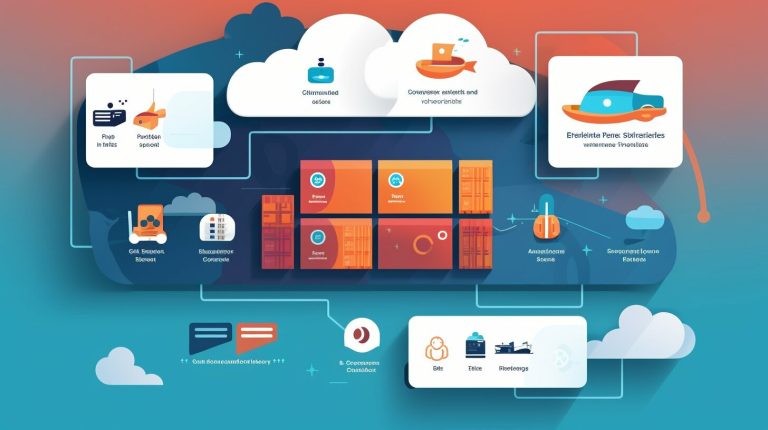Easy Guide on How to Check GitLab Version on Linux
As a Linux user, it is important to stay updated with the latest versions of software, including the popular GitLab version control system. Knowing the version of your GitLab installation can help you determine if you need to upgrade or troubleshoot any compatibility issues.
In this guide, I will walk you through the steps to check the GitLab version on Linux using both the GitLab interface and the command line. Whether you prefer a graphical interface or the power of the command line, you’ll find the process simple and straightforward.
Key Takeaways:
- Checking the GitLab version on Linux is essential for staying up to date.
- There are multiple methods to check the GitLab version, including using the interface and the command line.
- Upgrading GitLab on Linux requires following specific guidelines based on your installation method.
- Regularly checking and updating GitLab ensures optimal performance and security.
- Stay informed about the latest GitLab releases and features to take advantage of new functionalities.
Checking GitLab Version on Linux Using Command Line
If you prefer using the command line, you can check the GitLab version on Linux by running the following command:
gitlab-rails –version
This command will display the version number of your GitLab installation. It is a quick and convenient way to verify the GitLab version without accessing the interface.
Example:
When you run the above command, the output should look something like this:
By executing this simple command, you can easily find the version number of your GitLab installation on Linux.
Summary:
To check the GitLab version on Linux using the command line, execute the “gitlab-rails –version” command. This will display the version number of your GitLab installation. It is a quick and efficient method for verifying the GitLab version without accessing the interface.
| Command | Description |
|---|---|
| gitlab-rails –version | Displays the version number of GitLab on Linux. |
Upgrading GitLab on Linux
Upgrading GitLab on Linux is a crucial step to ensure you have access to the latest features, bug fixes, and security patches. The process may vary depending on your installation method, but here are some general guidelines to follow:
1. Backup Your Data
Prior to upgrading GitLab on Linux, it is essential to back up your data to avoid potential data loss. This includes all repositories, configuration files, and any customizations you have made. Taking this precautionary measure will allow you to restore your GitLab instance if any issues arise during the upgrade process.
2. Review the Release Notes
Before proceeding with the upgrade, take the time to review the release notes for the new version of GitLab. This will provide insights into the changes, improvements, and any compatibility considerations you need to be aware of. Understanding these details will help you better prepare for the upgrade and minimize any potential disruptions.
3. Follow the Official Documentation
GitLab provides comprehensive documentation on how to upgrade the software based on your specific installation method. Whether you are using the Omnibus package, Docker, or manually installed GitLab, refer to the official documentation for step-by-step instructions. These resources will guide you through the upgrade process and ensure a smooth transition to the latest version.
| Installation Method | Upgrade Documentation |
|---|---|
| Omnibus Package | Link to Omnibus Upgrade Documentation |
| Docker | Link to Docker Upgrade Documentation |
| Manual Installation | Link to Manual Installation Upgrade Documentation |
By following these guidelines and utilizing the official documentation, you can confidently upgrade GitLab on Linux and enjoy the latest features and improvements. Remember to always back up your data and thoroughly review the release notes to ensure a successful upgrade.
Conclusion
Checking the GitLab version on Linux is a straightforward process. Whether you prefer using the GitLab interface or the command line, you can easily find the version number of your GitLab installation.
If you choose to use the GitLab interface, simply navigate to the Admin area, click on “Overview,” and you will see the version information displayed on the right side of the page. This method is quick and user-friendly, making it ideal for those who prefer a graphical interface.
On the other hand, if you’re comfortable with the command line, you can check the GitLab version on Linux by running the command ”
1 | gitlab-rake gitlab:version |
“. This command will provide you with the version number, allowing you to verify it easily.
Additionally, upgrading GitLab on Linux requires following specific guidelines based on your installation method to ensure a successful upgrade. Whether you’re using the Omnibus package, source installation, or container-based deployment, it’s crucial to consult the official GitLab documentation for the detailed steps to upgrade your GitLab version on Linux.
FAQ
How can I check the version of GitLab on Linux?
To check the version of GitLab on Linux, you can follow these steps:
How do I check the GitLab version on Linux using the command line?
If you prefer using the command line, you can check the GitLab version on Linux by running the following command:
What are the general guidelines for upgrading GitLab on Linux?
Upgrading GitLab on Linux involves different steps depending on the installation method. Here are some general guidelines to follow:
How straightforward is it to check the GitLab version on Linux?
Checking the GitLab version on Linux is a straightforward process. Whether you choose to use the GitLab interface or the command line, you can easily find the version number of your GitLab installation. Additionally, upgrading GitLab on Linux requires following specific guidelines based on your installation method to ensure a successful upgrade.
Source Links
- https://docs.gitlab.com/ee/user/version.html
- https://docs.gitlab.com/ee/gitlab-basics/start-using-git.html
- https://docs.gitlab.com/ee/update/
- About the Author
- Latest Posts
Mark is a senior content editor at Text-Center.com and has more than 20 years of experience with linux and windows operating systems. He also writes for Biteno.com





